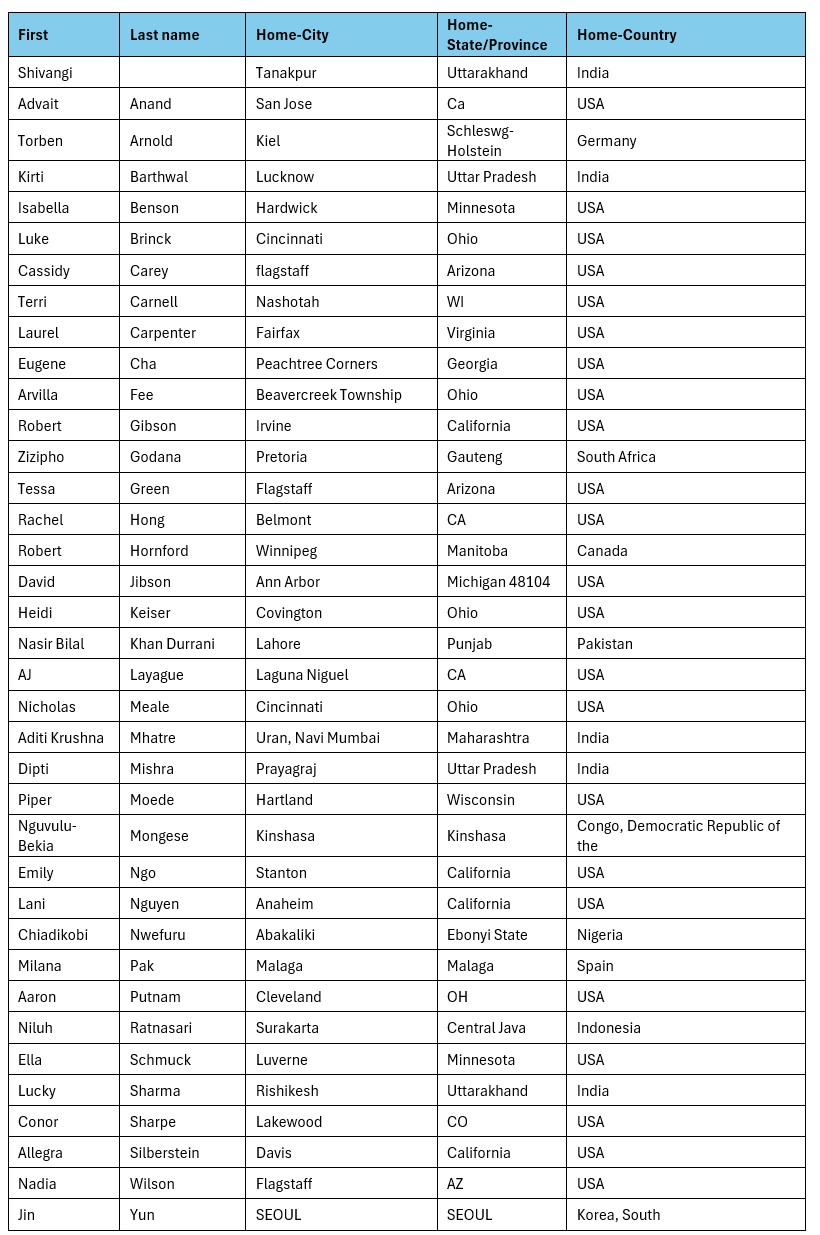2025 Sejong International Sijo Competition
Winners | Judges | Winning Entries
Winners
| One Division | |
|---|---|
| Winner | Shivangi Tanakpur, Uttarakhand, India sijo |
| Runners-up | Ella Schmuck Luverne, Minnesota, USA sijo |
| Eugene Cha Peachtree Corners, Georgia, USA sijo |
|
| Honorable Mention |
Kirti Barthwal Lucknow, Uttar Pradesh, India sijo |
| Chiadikobi Nwefuru Abakaliki, Ebonyi State, Nigeria sijo |
|
| Zizipho Godana Pretoria, Gauteng, South Africa sijo |
|
| Rachel Hong Belmont, California, USA sijo |
Finalist
About Winners
Shivangi
winner
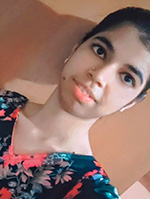
I am Shivangi, an English Literature student from Uttarakhand, and I am deeply honored and grateful for this recognition. As an INFJ, I have always been drawn to the contrast between what is spoken and what remains unsaid, the quiet depths hidden within simple gestures. This contrast is what drew me to the sijo, a form that can hold a universe of feeling within just three lines, so precise, yet so infinite.
I first encountered the sijo during a class lecture on poetic forms. My professor had shared a particularly striking example, and I was captivated by how the final line reframed everything that came before, that too so naturally. I was fascinated, yet in my first attempts, I confess, I wrote only for the sake of that twist alone, and what emerged felt hollow. I thought perhaps I could never write a genuine sijo. Months later, when I discovered this competition through social media, I remembered a piece I had written spontaneously, for the first time without forcing the volta. The thought of love enduring even as time decays came to me when I saw a worn-out watch on my friend’s wrist at our farewell ceremony. It looked out of place with her beautiful dress. When I asked, she smiled softly and said, “It’s my father’s. I feel his presence with it.”
No more words were needed. The lines arrived on their own, as if the feeling itself had found its form. That’s when I realized the volta isn’t something you construct; it reveals itself when true emotion leads. To have this piece recognized feels like the most beautiful affirmation. This experience has deepened my respect for the Korean tradition that embraces both restraint and profound emotion, a harmony I believe connects all human hearts. Thank you for this incredible honor.
Note: According to the winner, “Shivangi” is her full given name. In her region (Uttarakhand, India), it is common for individuals to use a single name rather than a separate family (last) name.
Ella Schmuck
runners-up

My name is Ella Schmuck I am 17 years old and a senior in high school.
I first learned about the competition from my amazing AP Literature teacher, Miss Sahly. I brainstormed different ideas of how I could get make a good story with a plot twist that would really surprise people. After I came up with my idea it took me awhile to put it together.
Through this process and receiving the runner-up award, I learned that patience and effort is very rewarding!
Eugene Cha
runners-up
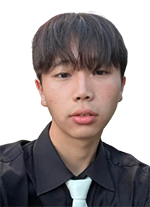
My name is Eugene Cha, and I am a high school student at Paul Duke STEM High School in Norcross, Georgia.
I first learned about Sijo when I was doing research about poetry. I thought this traditional Korean poetic form was fascinating because it expresses deep emotions and reflections within such a structured rhythm. As I studied more, I became inspired by how Sijo balances simplicity and complexity, allowing writers to convey meaningful ideas with elegance and restraint.
Through this experience, I learned not only about the beauty of Korean literature but also about the importance of connecting cultural heritage to modern expression. Writing my own Sijo helped me reflect on my identity and discover how language can bridge generations and preserve tradition in a changing world.
Kirti Barthwal
honorable mention
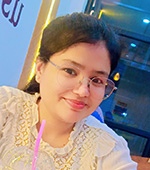
I am Kirti Barthwal. I started my writing journey only a few months back, without knowing the emotions I carried out for too long and thought were curse, turned out to be the biggest gift I could get.
I started writing just to find a safe place for my feelings. I started posting on my insta and thread account with my Pen Name Kira Skye ( kira_skyee_). There I got to interact with many writers I studied there writing style learnt from them. Slowly I started reading different poets like Sylvia Plath, Richard Wright, Basho, William Earnest Henley and wrote poems inspired by them.
I got to know different forms of poem like Haiku, Tanka, Ballad, free verse and Sijo. I started searching and participating in various poetry competition.
My first poem "A Paper Plane" got published in an anthology named " Soulprints of friendship " Volume 1 . It gave me motivation and made me more interested in writing poems. While searching for contest I got to know about Sejong international Sijo competition.
I write this poem about the way my mother expresses her love to me and I feel mother's from all the culture expresses their love in the same way. The last line of my poem had two different edition. The edition I submitted expresses the adulthood when child have to leave their home and while hustling in there hectic life the fading of steam of the cup noodles stirs the memories of the past.
Chiadikobi Nwefuru
honorable mention
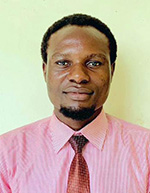
Nwefuru Godstime Chiadikobi is a final-year clinical medicine student at Ebonyi State University, Nigeria. A writer, educator, and advocate for sustainable quality education, his works explore the intersections of art, healing, and the human condition. His poems have appeared in The Penrose Poetry Magazine by Feathered Stag Press, The Shared Draft Magazine, and The Haiku Shack Poetry Magazine. His poem “Depression, the Silent Hell” and several essays were earlier featured in the Nigerian Medical Students Association Health Week Magazine (2018), NIMSA-SCOME Magazine (2020), and Carnegie Magazine (2018).
He received the Queen’s Commonwealth Essay Competition Gold Medal (2018), was a finalist in the World Youth Essay Competition (2017), winner of the MDF Southeast Regional Debate (2021), and runner-up in the Speckle Network Essay Competition (2021). He also earned distinctions in Pharmacology and Pediatrics and placed second runner-up in the African Intercontinental Medical Quiz (2023).
In the last six years in university, he served as Academic Director of FABAMSSA (two tenures), Secretary-General of FBCSSA, and Secretary-General of FCMSSA. Passionate about enriching medical learning, he founded MedScholar and Frontalis—platforms dedicated to simplifying education through creativity, collaboration, and mentorship.
He learned about the Sejong International Sijo Competition through a friend, Emecheta, who shared it on Facebook. His sijo, “An Erosion of Memory,” was inspired by the loss of his maternal grandmother, an octogenarian, during his fourth MBBS medical examinations—eight years after he last saw her. Sadly, she did not live to see her grandson become a doctor.
Zizipho Godana
honorable mention
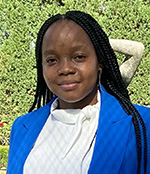
My name is Zizipho Godana, and I am a writer and postgraduate student based in Pretoria, South Africa.
I first learned about the Sejong International Sijo Competition while exploring international poetry contests online. I was drawn to the sijo form because of its balance, precision, and limitations— qualities that challenge and inspire me as a writer.
My entry was inspired by the kindness of strangers. Writing this sijo reminded me of how form can deepen meaning — how structure can hold emotion gently, without constraining it. This was my first time writing sijo, and it will definitely not be the last.
Rachel Hong
honorable mention

My name is Rachel Hong, and I am a junior at Carlmont High School in Belmont, California. I am passionate about writing, art, and exploring the intersection between creativity and STEM. As a writer for my school’s journalism program, I enjoy telling human interest stories that add emotion and depth to local issues.
I discovered the Sijo Competition while researching writing contests online, and as a Korean American, it immediately resonated with me. Although I was born in the United States, I spent several years living in Korea with my family and spoke Korean fluently. However, after returning to the U.S. at the age of four, I gradually lost my native language — an experience that inspired my Sijo. During visits to Korea, I often struggle to communicate with relatives because of language barriers and gaps in my Korean vocabulary. This has made me reflect on my identity: I feel American in many ways, yet my ethnicity and appearance mark me as Korean. When I speak English in Korea, I sometimes feel like an outsider, caught between two cultures and unsure where I fully belong.
Through my Sijo, I wanted to capture these experiences of belonging and self-discovery, ending on a hopeful note: a wish to regain fluency and reconnect more deeply with my family and heritage.
Writing a traditional Korean Sijo for the first time was a meaningful experience. It taught me how to express emotion and depth with precision, using just a few carefully chosen words. I also learned how to refine my writing to its most essential and powerful form, blending my love of art and language in a way that connects both personally and culturally.
